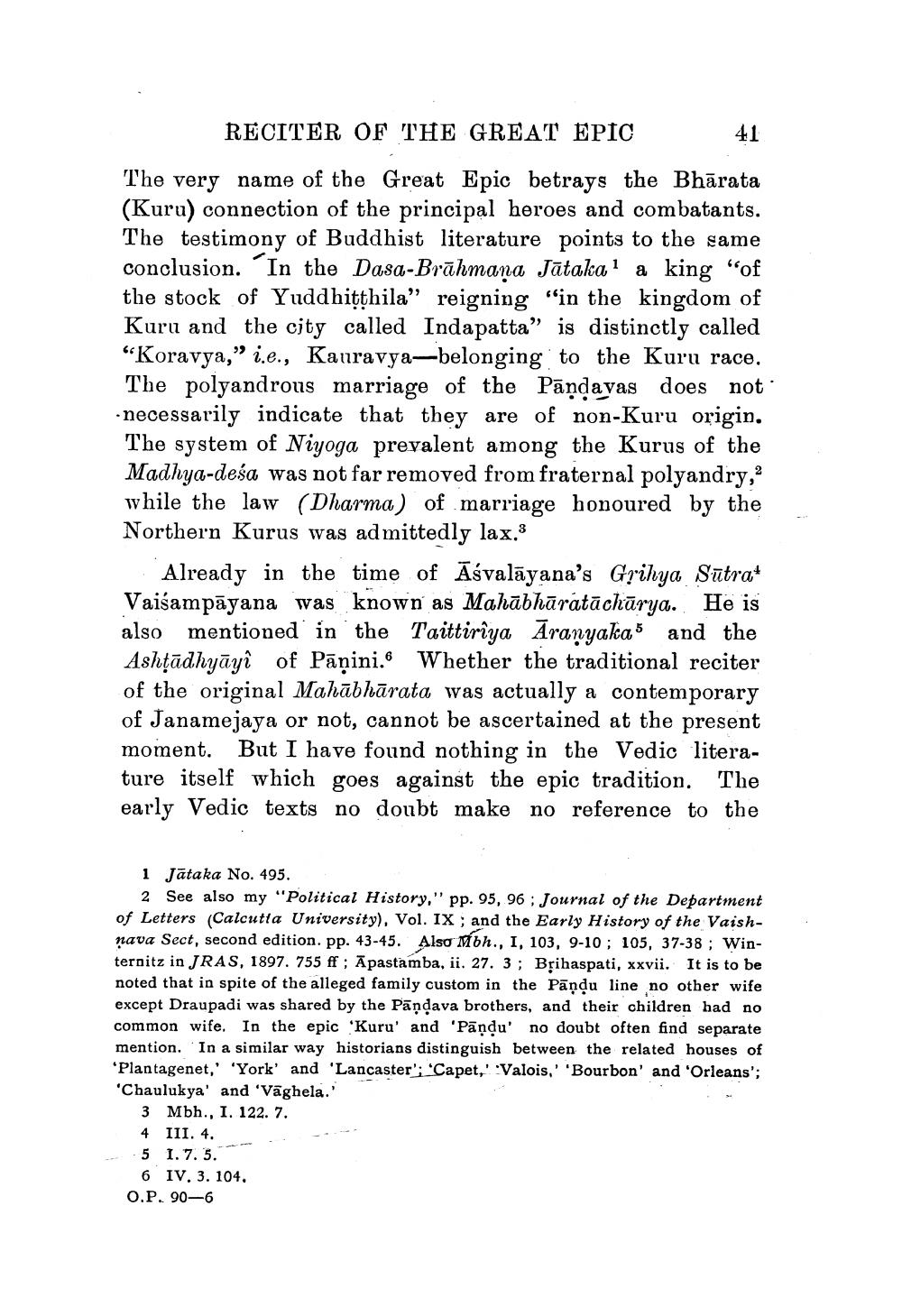________________
RECITER OF THE GREAT EPIC 41 The very name of the Great Epic betrays the Bhārata (Kuru) connection of the principal heroes and combatants. The testimony of Buddhist literature points to the same conclusion. In the Dasa-Brāhmana Jātakal a king "of the stock of Yuddhitthila” reigning "in the kingdom of Kuru and the city called Indapatta” is distinctly called “Koravya," i.e., Kauravya-belonging to the Kuru race.
The polyandrous marriage of the Pāņdavas does not · necessarily indicate that they are of non-Kuru origin.
The system of Niyoga prevalent among the Kurus of the Madhya-deśa was not far removed from fraternal polyandry, while the law (Dharma) of marriage honoured by the Northern Kurus was admittedly lax.3
Already in the time of Āśvalāyana’s Grinya Sutra+ Vaišampāyana was known as Mahābhāratāchārya. He is also mentioned in the Taittiriya Aranyaka5 and the Ashțādhyāyî of Pāņini. Whether the traditional reciter of the original Mahābhārata was actually a contemporary of Janamejaya or not, cannot be ascertained at the present moment. But I have found nothing in the Vedic literature itself which goes against the epic tradition. The early Vedic texts no doubt make no reference to the
1 Jataka No. 495.
2 See also my "Political History," pp. 95, 96, Journal of the Department of Letters (Calcutta University). Vol. IX; and the Early History of the Vaishnava Sect, second edition. pp. 43-45. Also Mh., I, 103, 9-10; 105, 37-38; Winternitz in JRAS, 1897. 755 ff; Āpastamba, ii. 27. 3 ; Bțihaspati, xxvii. It is to be noted that in spite of the alleged family custom in the Pandu line no other wife except Draupadi was shared by the Pandava brothers, and their children had no common wife. In the epic 'Kuru' and 'Pandu' no doubt often find separate mention. In a similar way historians distinguish between the related houses of 'Plantagenet,' 'York' and 'Lancaster': 'Capet,' Valois,' 'Bourbon' and 'Orleans'; 'Chaulukya' and 'Vaghela.
3 Mbh., I. 122. 7. 4 III. 4. 5 1. 7. 5."
6 IV. 3. 104, O.P. 90—6




